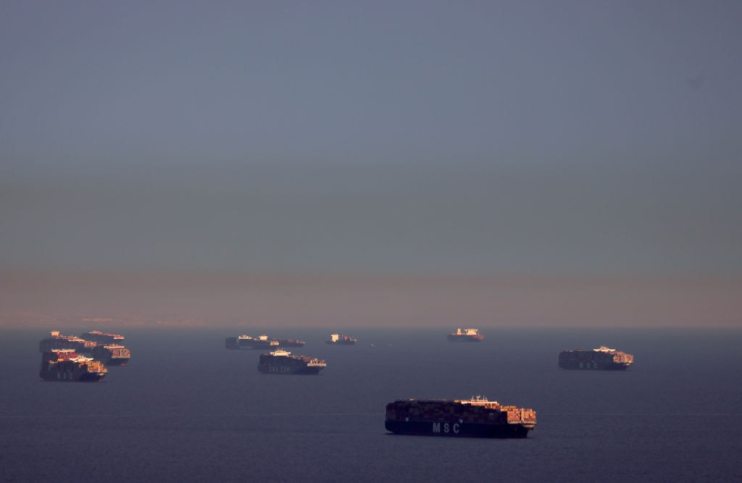Government confirms Russia can still send oil and gas to the UK despite port sanctions

Russia can still send oil and gas to the UK, despite a ban on the country’s ships docking at British ports, confirmed the Department for Transport (DfT)
Yesterday, the government imposed sanctions on all ships that have any connection to Russia, banning them from entering its ports.
This includes ships that are Russian owned, operated, controlled, chartered, registered or flagged.
The West has imposed a raft of measures on Russia following its invasion of Ukraine, in an attempt to isolate it from global markets.
However, DfT outlined sanctions were focused on the vessel, not its cargo.
This means the UK would not stop ships registered with other countries from transporting Russian oil or liquefied natural gas to the UK.
Foreign Secretary Liz Truss has raised the idea of fossil fuel quotas from Russia, however the West has so far avoided specific sanctions on energy.
Europe relies on Russia for around 40 per cent of its natural gas, while US President Joe Biden fears further tightening in oil markets as he looks to reduce the cost of living crisis ahead of the mid-term elections in November.
Although Russia remains committed to supplying oil and gas to world markets, Russia has responded in kind to certain sanctions, such as UK and EU decisions to block Russian planes from using its airspace.
Separately, the Energy Information Administration has reported that US crude stocks, gasoline and distillate inventories dropped last week.
Crude inventories fell by 2.6m barrels in the week to February 25 to 413.4m barrels, compared with analysts’ expectations in a Reuters poll for a 2.7 million-barrel rise.
Oil prices soared above $110 per barrel today, while UK and European gas prices have spiked over 30 per cent.